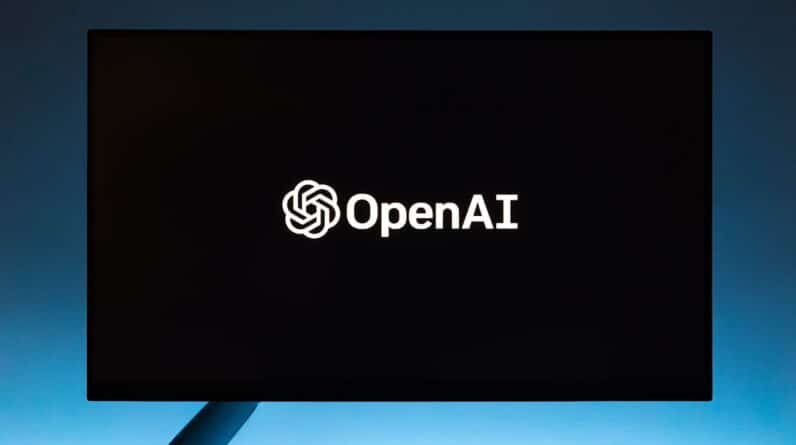As you navigate the complexities of modern society, you may find yourself increasingly aware of the profound impact artificial intelligence (AI) is having on various sectors, including the legal field. The intersection of AI and the law is a fascinating area that is evolving rapidly, reshaping how legal professionals conduct research, analyze cases, and even interact with clients. This convergence raises important questions about efficiency, accuracy, and ethical considerations, as AI technologies become more integrated into legal practices.
As you delve deeper into this topic, you will discover how AI is not just a tool but a transformative force that is redefining the landscape of legal services. The implications of AI in law extend beyond mere automation; they touch upon fundamental issues of justice and fairness. As you explore this intersection, you will encounter both the promise and the challenges that AI presents.
From enhancing legal research to influencing sentencing decisions, AI’s capabilities are vast and varied. However, with these advancements come significant ethical dilemmas and concerns about bias, accountability, and the potential for misuse. Understanding this complex relationship between AI and the law is essential for anyone interested in the future of legal practice and the pursuit of justice.
Key Takeaways
- AI is increasingly intersecting with the legal field, revolutionizing the way legal research, analysis, and predictive policing are conducted.
- AI is transforming legal research and analysis by automating the process of sifting through vast amounts of data to find relevant information and precedents.
- AI is being used in predictive policing and sentencing to identify patterns and trends in criminal behavior, raising ethical concerns about bias and fairness.
- Ethical considerations in AI and the law include concerns about bias, transparency, accountability, and the potential for AI to replace human judgment and discretion.
- Challenges and limitations of AI in the legal system include concerns about data privacy, security, accuracy, and the potential for AI to exacerbate existing inequalities in access to justice.
AI in Legal Research and Analysis
When you think about legal research, you might envision hours spent poring over case law, statutes, and legal precedents. However, AI is revolutionizing this process by enabling lawyers to conduct research more efficiently and effectively. Advanced algorithms can sift through vast databases of legal documents in a fraction of the time it would take a human researcher.
This not only saves time but also allows for a more comprehensive analysis of relevant cases and statutes. As you consider the implications of this technology, it becomes clear that AI can enhance the quality of legal arguments by providing deeper insights and more robust data. Moreover, AI tools can assist in identifying patterns and trends within legal data that may not be immediately apparent to human researchers.
For instance, predictive analytics can help lawyers anticipate outcomes based on historical data, allowing them to craft more informed strategies for their cases. As you engage with these technologies, you may find that they empower legal professionals to make better decisions and provide more effective representation for their clients. However, it is crucial to remain vigilant about the limitations of these tools and ensure that they are used responsibly within the legal framework.
AI in Predictive Policing and Sentencing
As you delve into the realm of predictive policing and sentencing, you will encounter some of the most controversial applications of AI in the legal system. Predictive policing uses algorithms to analyze crime data and forecast where crimes are likely to occur. While this technology has the potential to enhance public safety by allowing law enforcement agencies to allocate resources more effectively, it also raises significant ethical concerns.
You may wonder about the implications of relying on algorithms that could perpetuate existing biases within the criminal justice system. If historical data reflects systemic inequalities, then using that data to predict future crimes could exacerbate those issues. In terms of sentencing, AI tools are being developed to assist judges in making more informed decisions by analyzing factors such as prior convictions, demographic information, and even psychological assessments.
While these tools aim to promote fairness and consistency in sentencing, they also pose risks related to transparency and accountability. As you consider these developments, it is essential to question how much weight should be given to algorithmic recommendations in judicial decision-making. The balance between leveraging technology for efficiency and ensuring justice remains a critical conversation in the legal community.
Ethical Considerations in AI and the Law
As you explore the ethical landscape surrounding AI in law, you will encounter a myriad of concerns that demand careful consideration. One of the most pressing issues is bias in AI algorithms. If the data used to train these systems contains biases—whether racial, socioeconomic, or otherwise—then the outcomes produced by these algorithms may reflect those same biases.
This raises fundamental questions about fairness and equality before the law. You may find yourself grappling with the implications of using biased algorithms in critical areas such as sentencing or hiring practices within law firms. Another ethical consideration is transparency.
As AI systems become more complex, understanding how they arrive at specific conclusions can be challenging. You might wonder how legal professionals can justify decisions made with the assistance of AI if they cannot fully explain how those decisions were reached. This lack of transparency can undermine trust in the legal system and raise concerns about accountability.
As you engage with these ethical dilemmas, it becomes clear that establishing guidelines for responsible AI use in law is essential for maintaining public confidence in legal institutions.
Challenges and Limitations of AI in the Legal System
While AI holds great promise for enhancing legal processes, it is not without its challenges and limitations. One significant hurdle is the need for high-quality data to train AI systems effectively. Inaccurate or incomplete data can lead to flawed outcomes, which can have serious repercussions in legal contexts.
As you consider this issue, you may recognize that ensuring data integrity is crucial for the successful implementation of AI technologies in law. Additionally, there are concerns about job displacement as AI continues to automate tasks traditionally performed by legal professionals. While some argue that AI will create new opportunities for lawyers by allowing them to focus on higher-level strategic work, others worry about the potential loss of jobs in areas such as research and document review.
As you reflect on these challenges, it becomes evident that finding a balance between embracing technological advancements and preserving meaningful employment within the legal profession is a complex issue that requires thoughtful dialogue.
AI in Contract Review and Management
In the realm of contract review and management, AI is proving to be an invaluable asset for legal professionals. You may have experienced firsthand how tedious and time-consuming contract analysis can be, often requiring meticulous attention to detail. However, AI-powered tools can streamline this process by quickly identifying key clauses, potential risks, and compliance issues within contracts.
This not only enhances efficiency but also reduces the likelihood of human error—a critical factor when dealing with legally binding agreements. Furthermore, AI can assist in contract lifecycle management by automating tasks such as tracking deadlines, renewals, and compliance requirements. As you consider these advancements, you might appreciate how they free up legal professionals to focus on more strategic aspects of contract negotiation and management.
By leveraging AI technology, lawyers can provide better service to their clients while ensuring that contracts are managed effectively throughout their lifecycle.
The Role of AI in Access to Justice
One of the most promising aspects of AI in law is its potential to improve access to justice for underserved populations. You may be aware that many individuals face significant barriers when seeking legal assistance due to high costs or lack of resources. However, AI-driven platforms are emerging that offer affordable legal advice and support through chatbots or online consultations.
These tools can help individuals navigate complex legal issues without incurring exorbitant fees. Moreover, AI can assist public interest organizations in identifying patterns of injustice or discrimination within communities. By analyzing large datasets, these organizations can better understand systemic issues and advocate for necessary reforms.
As you reflect on these developments, it becomes clear that AI has the potential to democratize access to legal resources and empower individuals who might otherwise be marginalized within the justice system.
The Future of AI in the Legal Field
As you contemplate the future of AI in the legal field, it is evident that this technology will continue to play an increasingly significant role in shaping legal practices and processes. While there are undeniable benefits—such as enhanced efficiency, improved access to justice, and better decision-making—there are also challenges that must be addressed to ensure ethical implementation. You may find yourself considering how legal professionals can adapt to this evolving landscape while maintaining their commitment to justice and fairness.
Ultimately, the successful integration of AI into the legal system will depend on collaboration among technologists, legal practitioners, ethicists, and policymakers. By working together to establish guidelines for responsible use and addressing concerns related to bias and transparency, we can harness the power of AI while safeguarding fundamental principles of justice. As you look ahead, it is clear that navigating this intersection will require ongoing dialogue and a commitment to ensuring that technology serves as a force for good within the legal realm.
In a related article to AI and the Law: Navigating the New Frontiers of Justice, the discussion on the use of AI in education is also gaining traction. The article AI and Education: Transforming the Learning Experience explores how artificial intelligence is revolutionizing the way students learn and teachers teach. As AI continues to permeate various aspects of society, it is crucial to understand its implications in education and ensure that it is used ethically and effectively.
FAQs
What is AI and the Law: Navigating the New Frontiers of Justice about?
AI and the Law: Navigating the New Frontiers of Justice is an article that explores the intersection of artificial intelligence (AI) and the legal system. It discusses the potential impact of AI on various aspects of the legal profession, including legal research, contract analysis, predictive analytics, and decision-making processes.
How is AI currently being used in the legal field?
AI is being used in the legal field for tasks such as legal research, document review, contract analysis, predictive analytics, and decision support. AI tools can help lawyers and legal professionals to streamline their work, improve efficiency, and make more informed decisions.
What are the potential benefits of AI in the legal field?
The potential benefits of AI in the legal field include improved efficiency, cost savings, enhanced accuracy in legal research and analysis, better decision-making support, and the ability to handle large volumes of data and documents more effectively.
What are the potential challenges and ethical considerations related to AI in the legal field?
Some potential challenges and ethical considerations related to AI in the legal field include concerns about bias in AI algorithms, the impact on jobs and the role of lawyers, data privacy and security issues, and the need for transparency and accountability in AI systems used for legal purposes.
How can the legal profession navigate the new frontiers of AI and the law?
The legal profession can navigate the new frontiers of AI and the law by staying informed about the latest developments in AI technology, understanding the potential impact on legal practice, addressing ethical considerations, and embracing opportunities to leverage AI tools for improved efficiency and decision-making.






